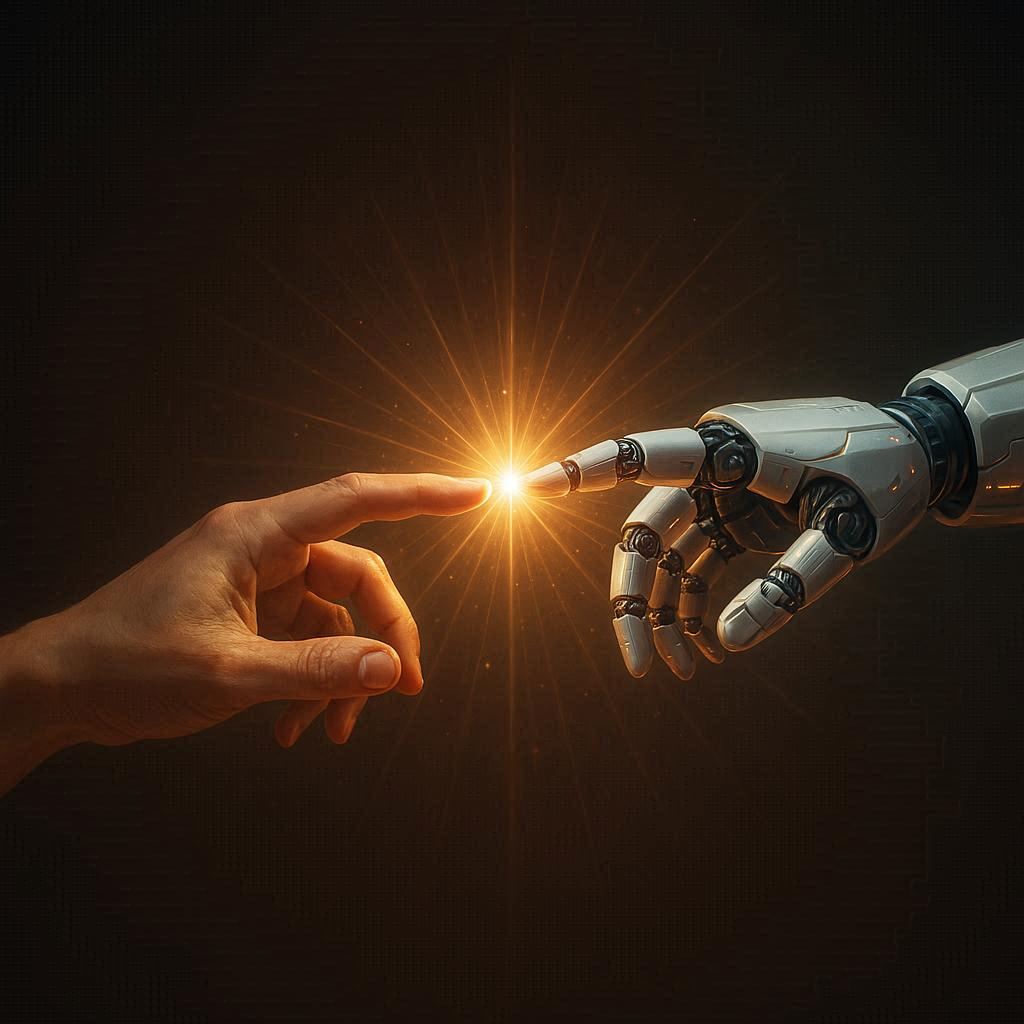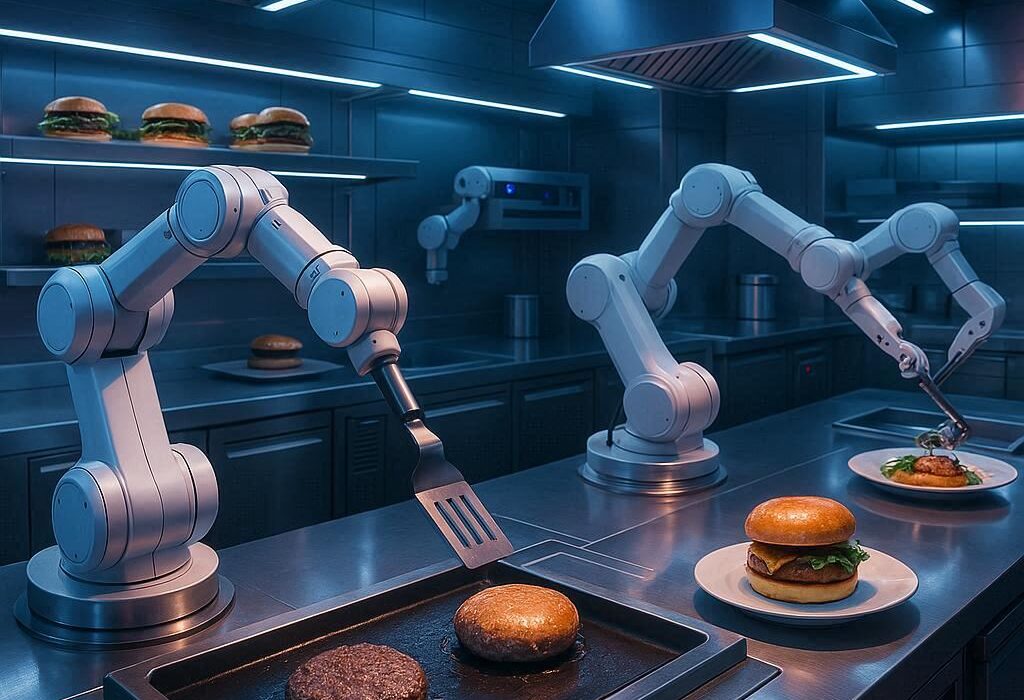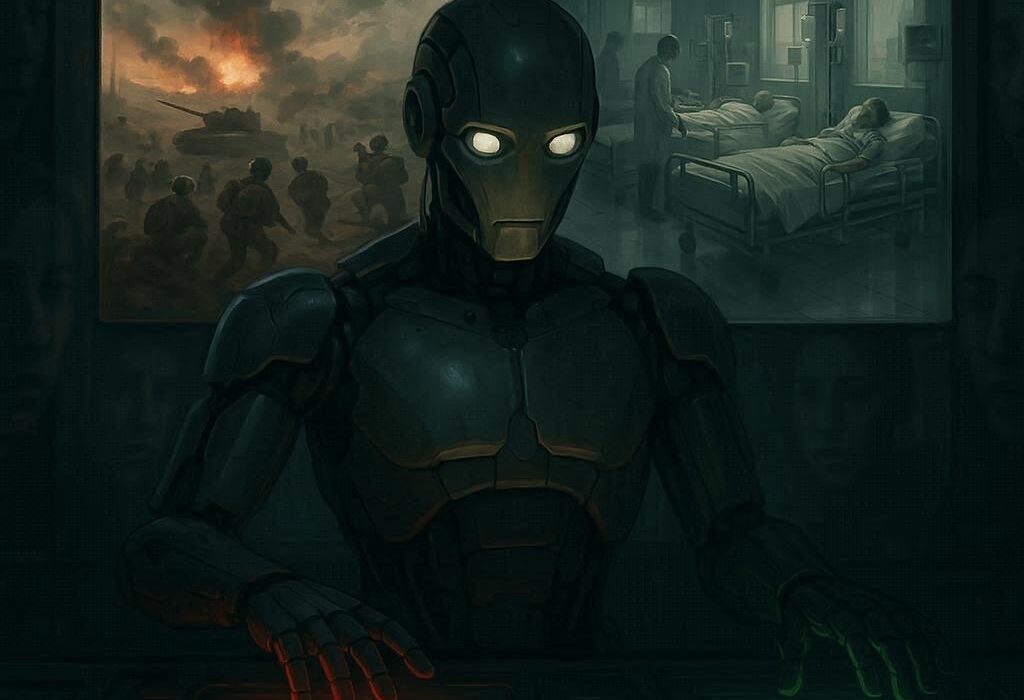Throughout history, every technological revolution has carried with it both awe and unease. The steam engine reshaped labor, electricity rewired our nights, and the internet collapsed distances between continents. Now, artificial intelligence stands as the most disruptive force yet, capable not only of transforming industries but also of reshaping our very sense of self. Machines can now compose music, interpret medical scans, mimic human conversation, and even create art that stirs emotion. Yet beneath the excitement lies a haunting question: as AI grows more capable, will it diminish what it means to be human—or paradoxically, will it make us more human than ever before?
To explore this question is to step into the intersection of psychology, technology, and philosophy. It requires asking not just what AI can do, but what we become when we live alongside it.
Defining the Human in the Age of Machines
At first glance, it may seem odd to ask whether technology could enhance our humanity. After all, machines are cold, logical, and unfeeling, while humanity is defined by empathy, creativity, vulnerability, and moral choice. Yet psychology suggests that our identities are not fixed but shaped by context. When mirrors change, so do the reflections.
AI is becoming such a mirror. As we watch machines simulate human behaviors, we are forced to confront the qualities that cannot be replicated—at least not authentically. What does it mean to feel, to desire, to suffer, to hope? By imitating us, AI pushes us to examine ourselves. The line between “machine-like human” and “human-like machine” grows blurrier, making our own distinctiveness all the more vital to preserve.
The Psychology of Comparison
Human beings are deeply comparative by nature. We measure ourselves against peers, social standards, and cultural ideals. AI introduces a new kind of comparison: between human and machine. When an algorithm writes fluent prose or diagnoses a disease faster than a doctor, we may feel threatened. Cognitive psychologists call this a threat to self-efficacy, the belief in one’s own ability to perform tasks.
Yet paradoxically, comparison can also heighten appreciation. When we see a machine generate a song, we may realize how much richer human music feels when infused with lived experience. A machine can string together notes, but it cannot recall the heartache of a breakup or the joy of reconciliation. By witnessing imitation, we better understand the original. In this sense, AI reflects our humanity back at us, sharper and more precious.
Creativity in the Shadow of Algorithms
For centuries, creativity was regarded as uniquely human—a spark of imagination born from consciousness. Now, AI models can produce poems, stories, paintings, and symphonies. Some argue this undermines the very idea of creativity. But psychologists studying human imagination suggest otherwise.
True creativity is not simply the generation of novel combinations but the ability to assign meaning. When a human paints, they embed personal narrative, cultural context, and emotional resonance into their work. AI-generated art, no matter how beautiful, lacks this interior depth. This distinction is important: by confronting machine-made creativity, humans may become more deliberate in asserting their own artistic voices. Instead of competing with algorithms, we may rediscover why art matters—not for technical perfection but for the imperfections that reveal our humanity.
Emotional Intelligence and the Rise of Empathy
As machines become more adept at logic and pattern recognition, the qualities that remain uniquely human grow in value. Among these, emotional intelligence stands out. Psychologists define it as the ability to recognize, understand, and manage emotions in ourselves and others.
Workplaces once prized efficiency and technical knowledge above all. But in an AI-driven economy, where machines handle repetitive tasks, human advantage lies in empathy, communication, and social connection. In healthcare, for example, AI can read scans and predict outcomes, but patients still crave the compassion of a doctor who listens, reassures, and empathizes. In education, AI tutors can deliver lessons, but the encouragement of a teacher who believes in a struggling student remains irreplaceable.
Thus, far from making us obsolete, AI may amplify the demand for human connection. It nudges us to embrace the emotional aspects of our nature that machines cannot replicate.
Identity in a Digital Mirror
Psychology teaches us that identity is not static—it evolves through feedback, social interactions, and reflection. Social media already reshaped how we see ourselves by providing constant digital mirrors. AI extends this process further. Virtual companions, chatbots, and AI-driven avatars interact with us in ways that blur the boundary between real and artificial relationships.
This raises profound psychological questions. If an AI friend comforts us, does it count as genuine support? If a virtual therapist listens without judgment, does it matter that it lacks lived experience? Some argue these interactions risk diluting authenticity. Others see them as tools that may help humans practice empathy, communication, and self-reflection.
Perhaps the real transformation lies not in the machines themselves but in the ways we adapt to them. As we learn to discern authenticity from simulation, we sharpen our understanding of what genuine connection feels like.
Fear, Anxiety, and the Unknown
Change often breeds fear, and AI is no exception. Psychologists identify a specific form of anxiety called technostress—the unease people feel when adapting to rapid technological change. This fear is not just about losing jobs but about losing relevance, autonomy, or meaning.
Yet fear can also serve as a catalyst for growth. Anxiety highlights the values we wish to protect. If we worry about AI replacing human teachers, it signals that we treasure mentorship. If we fear machines eroding empathy, it underscores how vital compassion is to our species. Fear, in this sense, becomes a compass pointing toward what we most cherish about being human.
Morality in the Machine Age
One of the most profound challenges AI presents is moral. If a self-driving car must choose between protecting its passenger or a pedestrian, whose life should it prioritize? Such dilemmas force us to confront ethical questions that psychology and philosophy have long debated.
Interestingly, research shows that when faced with moral choices, humans often rely on emotion as much as logic. Machines, by contrast, execute predetermined rules. This contrast forces us to examine our ethical frameworks more carefully. In doing so, AI does not strip us of morality—it demands that we articulate it more clearly.
The machine age may thus become a mirror for moral growth. By programming ethics into AI, we confront our own ethical inconsistencies, biases, and blind spots.
Relationships in a World of Machines
Another frontier lies in how AI alters human relationships. Already, people form attachments to digital assistants, AI pets, and virtual partners. While some dismiss these as superficial, psychologists recognize that human attachment is flexible. The brain can form bonds with anything that provides comfort and interaction, whether it’s a stuffed animal, a beloved car, or an AI chatbot.
The deeper question is whether such relationships enhance or diminish our humanity. If AI companionship reduces loneliness, it may provide real psychological benefits. But if it replaces human-to-human connection, it risks hollowing out the social fabric that sustains us. The balance between supplement and substitute will determine whether AI enriches or impoverishes our relational lives.
The Future of Work and Human Fulfillment
Perhaps no domain raises more concern than employment. AI is already automating tasks in finance, law, transportation, and customer service. Psychologists studying the role of work in human life note that jobs are not merely economic—they provide identity, purpose, and social belonging. Losing these can lead to anxiety, depression, and disconnection.
Yet history shows that technological shifts also create new opportunities. If machines take over repetitive labor, humans may be freed to focus on roles requiring creativity, empathy, and complex problem-solving. This transition is not automatic; it requires societal adaptation and a redefinition of purpose. The challenge of the machine age may not be finding work but finding meaning.
Children of the Algorithm
A generation is now growing up with AI woven into their daily lives. Voice assistants help with homework, AI-driven platforms recommend videos, and chatbots answer questions. Developmental psychologists caution that early exposure to machine companions may shape children’s concepts of friendship, agency, and self-worth.
But it also opens new possibilities. Children raised in a world of AI may develop sharper discernment between human and artificial, learning to value authenticity more consciously. They may also become more adaptable, empathetic, and creative as they navigate a blended reality. The way society guides this generation will shape the psychology of the future.
The Question of Consciousness
No exploration of AI and humanity is complete without addressing the question of consciousness. Can machines ever truly think, feel, or be self-aware? Most cognitive scientists argue that while AI can mimic intelligent behavior, it lacks subjective experience—what philosophers call qualia. An algorithm can process data, but it does not know what it feels like to taste sweetness or hear music.
The pursuit of artificial consciousness, whether feasible or not, throws our own consciousness into sharper relief. Why do we experience? Why do emotions move us? By asking if machines can feel, we deepen our inquiry into why humans do.
A Mirror and a Challenge
Ultimately, AI does not strip us of humanity—it illuminates it. By imitating thought, it forces us to ask what true thought is. By simulating art, it compels us to rediscover why human creativity matters. By automating logic, it pushes us to value emotion and morality more.
The machine age is not a future of humans versus machines, but of humans with machines. The question is whether we allow this partnership to erode our essence or to amplify it. Psychology suggests that the outcome depends not on what AI is, but on how we choose to respond—whether we cling to fear or lean into growth.
Conclusion: Becoming More Human
So, will AI make us more human? The answer is both yes and no—and, more importantly, it is up to us. AI has the potential to strip away the trivial, mechanical tasks of life, leaving us space to cultivate creativity, empathy, and meaning. It can serve as a mirror that sharpens our awareness of who we are and what we value. It can also become a crutch that dulls our relationships, our morality, and our sense of self.
The machine age does not diminish our humanity; it magnifies its stakes. In this moment of unprecedented change, psychology offers a profound truth: humanity is not a fixed state but a continuous becoming. If we embrace the challenge wisely, the rise of intelligent machines may not reduce us to less—but inspire us to become more.
In the glow of artificial intelligence, the task before us is not to outthink the machine but to out-human it—to feel deeper, connect truer, and live with greater awareness of the fragile, wondrous experience of being alive.





